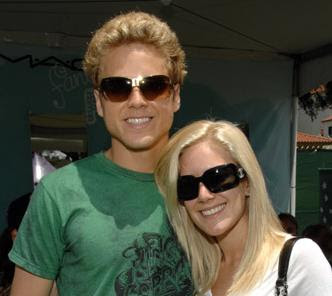I have dedicated many of these pages to the political polling data of Americans. However, in a time when our leaders are telling us that the greatest threat our country has ever faced comes from the Arab world, wouldn't it be interesting to examine what Arabs think?
In fact, this week the
2008 Annual Arab Public Opinion Poll was published, containing some very telling data. The survey (which interviewed subjects in six different Arab countries) found that 83% of the Arab public views the United States unfavorably. That finding alone is not particularly surprising. However, the study also found that Arabs' attitudes of the United States are overwhelmingly influenced by U.S. foreign policy as opposed to "American values."
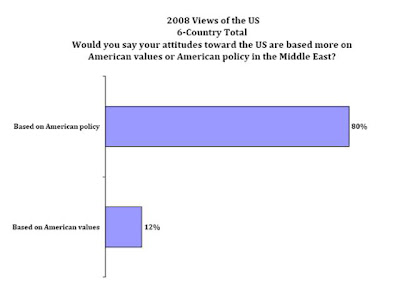
Only 12% of Arabs indicated that their attitudes towards the U.S. were determined by American values. This is an overwhelmingly low percentage when you consider people often use "religion" and "values" interchangeably, and compared to the predominantly Muslim Arab world, Muslims in the U.S. make up a mere 0.6% of the population. For years we have been told that the 9/11 attacks and "The Great Satan" rhetoric coming from the Arab world was a direct assault on American values. However, as polling data (and, well, common sense) suggest, perhaps the best way to determine the attitudes of people in the Middle East is to actually ask them.
Of course, these data allow us to view the erroneous statements and beliefs of prominent Republicans in a whole new light.
George W. Bush
Perhaps the most famous example of this fallacy was the post-9/11 "analysis" of President Bush: "America was targeted for attack because we're the brightest beacon for freedom and opportunity in the world....They hate our freedoms," Bush proposed. "Our freedom of religion, our freedom of speech, our freedom to vote and assemble and disagree with each other."
As ridiculous as the notion of someone hating freedom may sound, most Americans bought into this idea at the time.
Rev. Jerry Falwell
When he wasn't busy outing children's TV characters, the reverend chimed in with his own analysis of the 9/11 attacks:
I really believe that the pagans, and the abortionists, and the feminists, and the gays and the lesbians who are actively trying to make that an alternative lifestyle, the ACLU, People For the American Way, all of them who have tried to secularize America. I point the finger in their face and say 'you helped this happen.'
While Falwell later apologized for the remarks, placing the blame for the death of 3,000 innocent civilians squarely at the feet of the American Left hardly seems like a slip of the tongue.
Rudy Giuliani vs. Ron Paul
In a May 2007 Republican debate, Ron Paul asserted that the United States was attacked on 9/11 in part as blowback from of an interventionist foreign policy in the Middle East. Giuliani took exception, calling Paul's hypothesis "absurd." The pro-war Fox News audience erupted in applause, as it appeared Giuliani had easily bested the unpatriotic Paul. Paul didn't back down, however, responding with what rational-thinking Americans know to be the truth:
If we think we can do what we want around the world and not incite hatred then we have a problem. They don't come here to attack us cause we're rich and we're free. They attack us cause we're over there. I mean, what would we think if other foreign countries were doing that to us?
As it turns out, Ron Paul was right. While Giuliani got the applause, Paul's campaign has raised more money and won more delegates than Giuliani's, and Paul is still technically in the race, compared to Giuliani, who dropped out three months ago.
John McCain
Certainly it is still very possible for a Republican to run a successful campaign while still making this error. In fact, John McCain's error is no slip of the tongue either - it's in writing on his official campaign website, http://www.johnmccain.com/. McCain states that:
The [9/11] tragedy highlighted a failure of national policy to respond to the development of a global terror network hostile to the American people and our values.
Why have these politicians repeatedly made this specious error in spite of it's utter implausibility? Simple. Because it is easier to comprehend than decades of American meddling in the Middle East, supporting a coup in Iran, defending Israel, bombing Lybia, establishing bases in Saudi Arabia, as well as this latest Iraq debacle. And it's easier on the conscience for Americans to tell themselves, "Oh, terrorists are just crazy" or "They just despise our values" rather than accept that their own country's reckless imperial foreign policy decisions have created dangerous enemies abroad.
Let's just examine exactly how idiotic is the notion of the Freedom-Hating Terrorist. Take, for example, an Arab prisoner at Guantanamo. I would seriously doubt he would prefer captivity to freedom, let alone be willing to kill for his right to remain imprisoned. That is absurd. I'm also fairly certain he would be very pleased to be afforded the right of habeus corpus (which we Americans frequently enjoy). The right to practice religion freely and the opportunity to prosper economically are also likely to appeal to both Americans and Arabs alike.
Even if you could assume that all of these values didn't appeal to the majority of the Arab world, lack of appeal simply isn't enough to justify horrific terrorist acts perpetrated against the West. If people are willing to kill or be killed, it almost always accompanies the promise of reward or heroism. It's hard to see how killing an innocent person because you don't like their values is particularly rewarding or heroic. Yes, I know about the 72 virgins, or whatever the number is. But you can't conflate religious fundamentalism with terrorism. The two do not necessarily go hand in hand. The religious aspect and the promise of martyrdom makes committing suicide attacks easier for the attackers to go through with, but it is not the motivating factor behind the attack. If it were, wouldn't radical Islamic terrorism be raining down on all of the non-Muslim world? Instead, nearly every Islamic terrorist attack on record - from Munich, to Pan-Am 103, to the London and Madrid subway bombings and the Iraqi insurgency - was motivated not by religious fanaticism, but by what the attackers saw as retaliation for unjustified acts committed against them.
The motives behind the 9/11 attacks are no different. The 9/11 Commission Report found that even Osama bin Laden, as ideological as any Muslim, claimed the 9/11 attack was not motivated by disdain for American values, but in retaliation for American foreign policy. In a 2004 video, bin Laden traced the genesis of the attacks as far back as the 1982 U.S.-led attack on Lebanon. And rather than being an enemy of freedom, bin Laden asserted that the attacks were meant to "restore freedom to our nation." Certainly the 9/11 attack was a reprehensible act for which no justification exists, but that doesn't mean those responsible were acting out of sheer lunacy. Making up fables like "They hate our freedoms" is not only untrue, but dismissing the real motivations behind the attack only serves to make another attack more likely.
We know that the idea that "they hate our freedoms" is preposterous, so why do people still believe it to be true? To better understand the post-9/11 U.S. foreign policy debacle, we need to examine a little social psychology. The incorrect belief that Arabs hate American values stems from a broader social phenomenon known as the Fundamental Attribution Error. Psychologists define the error as "the tendency to overestimate the internal and underestimate the external factors when explaining the behaviors of others." In other words, people (normal people, for this is not a cognitive disorder) tend to believe the behavior of others is more a function of the type of person they are rather than what situations may have contributed to the behavior. Most of us have been in the situation where someone driving in the car in front of us has made a questionable driving maneuver, after which we thought (or said aloud) "What a dumb asshole!" Chances are the driver is neither dumb nor an asshole, but was rather influenced by children in the car, a phone call, another driver, stress, or some other external factor or factors.
So as it relates to the analysis of terrorist acts, United States politicians and pundits have over-emphasized the personality-based explanation (these guys are crazy freedom-haters) and under-emphasized the external factors (U.S. intervention in the Middle East). In fact, as Patrick Rael of the Bowdoin Orient illustrates, Osama bin Laden and others have not only claimed to be acting in retaliation for U.S. military intervention, but have also stressed that they are themselves "freedom fighters." Thus any idea that Muslim terrorists "hate freedom" is preposterous because they feel that is the very goal for which they strive. More than just an exercise in relativism, the inability of both the United States and Muslim extremists to view each other with objectivity has had disastrous consequences.


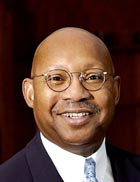
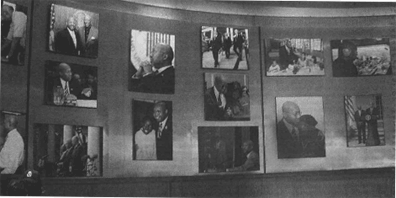
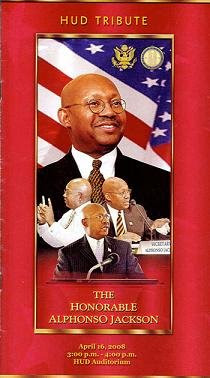
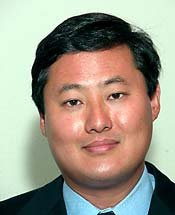 It seems as though with each passing week, Americans are learning more and more about the disturbed conservative mind of John
It seems as though with each passing week, Americans are learning more and more about the disturbed conservative mind of John 
